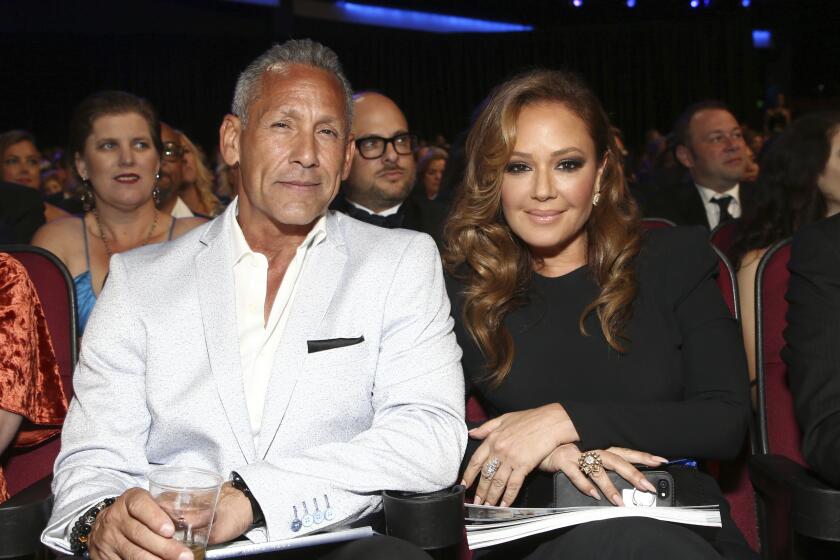TV Reviews : ‘Living in America’ Replays Censorship Clashes
“The battle over censorship in America is a very heavy thing,” says actor-comedian Sandra Bernhard, hosting the VH-1 cable special “Living in America” (premiering today at 6 p.m.). How heavy is it? It’s “the main event in a culture war between two very different groups of Americans--on one side, people we like, and on the other, people we don’t. Just kidding.”
No, she’s not. At various points in her narration of this anti-censorship documentary, Bernhard seems to be doing a deadpan parody of indignant liberalism at its most shrill and self-righteous, another sly piece of her self-mocking, swaggering performance art. But soon, it becomes clear that for once, she’s playing it absolutely straight, and even the already-converted may find off-putting Bernhard’s undisguised, seething contempt for all those bumpkins who want to repress art.
When Bernhard isn’t on screen, “Living in America” is a fascinating, zippy look back through the year that was, touching mainly on the 2 Live Crew, Mapplethorpe and NC-17 controversies. In the typical style of VH-1’s sister channel MTV, a rush of sound and audio bytes offers the perspectives of a motley crew including Pat Robertson, Don Henley, Jack Valenti, Jack Thompson, Bill Moyers, Roger Ebert and Alan Dershowitz. The slant is clear, but as advocacy journalism it has a sense of humor, evidenced in the witty song beds placed under the film clips.
The program does present a few middle-ground voices of reason, like Paul Simon (“There are a lot of records that seem to me calculatedly provocative, that are less about First Amendment rights than they are about making money, and there’s something hypocritical about that”), alongside the apocalyptic voices of impending Big Brotherhood and government jackboots from threatened artists, curators and attorneys.
But when the clips stop and Bernhard is back waxing piqued, “Living in America” is unbearably simplistic, and hits a low when she huffily reads benign excerpts from the “Impressions” textbooks to prove just how ignorant the ban-happy rubes in rural America are. Sketchy as it is, the show is more over its head dealing with schoolbook disputes than with the better-known art and music controversies, and effectively writes off the concerns of millions of parents as so much neo-Nazi book burning.
The complete guide to home viewing
Get Screen Gab for everything about the TV shows and streaming movies everyone’s talking about.
You may occasionally receive promotional content from the Los Angeles Times.



